Dundee United fell to a 2-0 defeat against Celtic on Wednesday night courtesy of goals from Japanese duo Reo Hatate and Daizen Maeda.
The Hoops also stuck the woodwork through Auston Trusty, while Arne Engels was a constant threat from midfield and perhaps unlucky not to get his own name on the scoresheet.
Jim Goodwin’s charges turned in a much-improved second-half showing after being completely dominated before the interval but failed to carve open anything approaching a clear-cut chance.
Courier Sport was at Celtic Park to analyse the action.
Opening goal frustration
Celtic deserved to win on Wednesday evening. To suggest otherwise would be deranged. They probably should have been ahead long before Maeda broke the deadlock, given Trusty rattled the bar with a header after 13 minutes.
Nevertheless, the visitors should be irked by the manner of the opening goal – so important when a team’s gameplan is to frustrate and keep the score level for as long as possible – which was entirely avoidable.
The CliffNotes description of the strike will state that Vicko Sevelj gave away possession and, from there, Luke McCowan’s shot was parried to Maeda and the Japan international fired home.
However, Sevelj shouldn’t shoulder the blame alone. Richard Odada’s decision to fizz a pass to him at an almighty pace from five yards would have tested the first touch of prime Andres Iniesta. A wild move on the edge of one’s own box.
Jack Walton made a decent enough stop – and he would go on to make a couple of excellent ones during another fine display – but could he have palmed the ball away from danger, rather than into the centre of the Hoops box?
And Maeda’s reaction was far sharper than any surrounding defenders, affording him a relatively simple finish.
Celtic are capable of scoring good goals. This didn’t need to be.
Ross Graham shines on first start in 3 months
Celtic Park. Venues don’t come much tougher at which to make your first start in more than three months.
However, Ross Graham turned in a superb display against the reigning – and future – Scottish champions, with no blame attached to the big centre-back for either goal during a composed, aggressive showing at the heart of United’s defence.
In a team performance more about collective endeavour than individual inspiration, he stood out alongside Kai Fotheringham, Glenn Middleton and the excellent Emmanuel Adegboyega at right-back.
Graham had only made a handful of substitute appearances since suffering a hamstring tear against St Mirren on October 5 but showed no signs of rustiness as he recaptured his form prior to that injury set-back.
No player on the pitch made more clearances than his tally of 13 (that was almost double the number made by centre-back partner Declan Gallagher), while only Fotheringham and Will Ferry won more duels in the United side.
He also strode out of defence on a couple of occasions and played a few intrepid passes forward as the Terrors sought to carry some threat on the break.
Goal difference factor remains positive
A defeat is never to be welcomed but, given the gulf in quality afforded by an £118 million difference in annual turnover, it was always likely.
And there was a real fear this could be Goodwin’s first hammering as United boss (he is yet to lose a game by more than three goals), given the fixture congestion and an inevitable swathe of changes to his starting 11.
What does it matter? 2-0 or 6-0? A defeat’s a defeat.
Well, in a league as tight as this season’s Scottish Premiership, it could matter plenty. Even this early in the campaign it is worth considering United’s very healthy goal difference as an additional point.
And after one visit to Celtic Park, the Tangerines remain four goals better off than Aberdeen, while it would take a 13-goal swing for Motherwell to catch them and a 16-goal swing for St Mirren.
As we speak, that is the sole metric separating third-placed United and the Dons.
It is not out-with the realms of possibility that it could be the defining factor after match-day 38.
So, some modest satisfaction should be taken from manfully avoiding a heavier scoreline.
Proof in the pudding of Goodwin’s team selection comes against St Mirren
Goodwin made five changes to his starting line-up. Ryan Strain, Ross Docherty, Luca Stephenson and Sam Dalby were the most noteworthy names on the bench, with the decision to give the league’s top goal-scorer a rest raising a few eyebrows.
And there is no doubt that United were much improved in the second half when Docherty, Stephenson and Dalby were gradually introduced, affording the visitors far more calmness on the ball and some mild attacking threat.
Would it have been a different game if those players had started? Would Celtic’s complete monopolisation of the football have been slightly less stark, as it was after the break when United made their presence felt?
Impossible to say.
However, you can say for sure that if Goodwin had asked the same group of players to go to the well again – having looked shattered against Hearts on Sunday – then they would have been running on empty for a crucial clash with St Mirren.
Goodwin’s team selection against Celtic can be judged at full-time in Paisley rather than full-time in Glasgow.
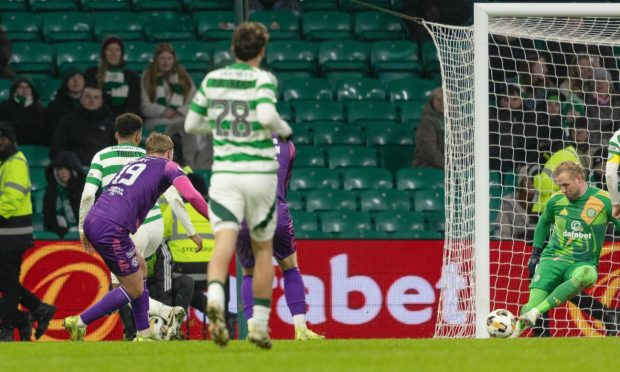
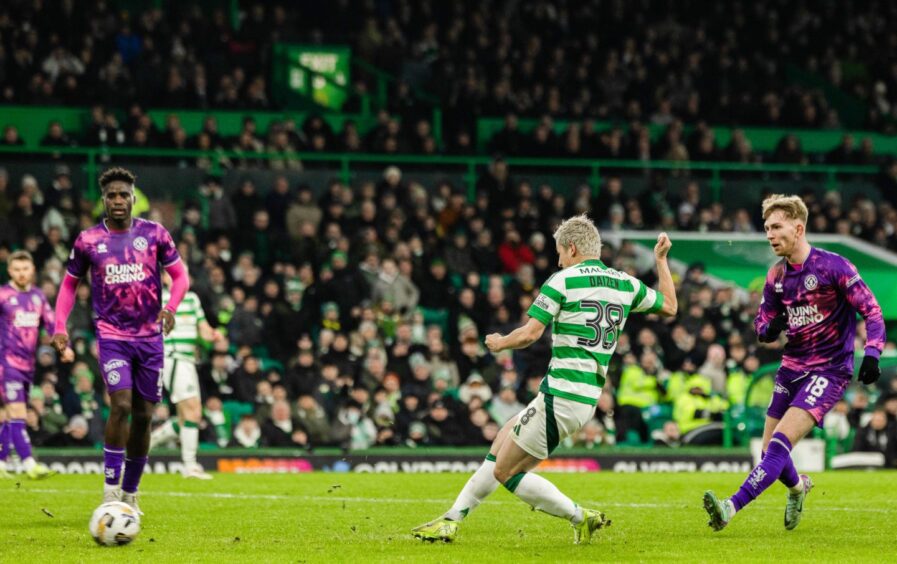
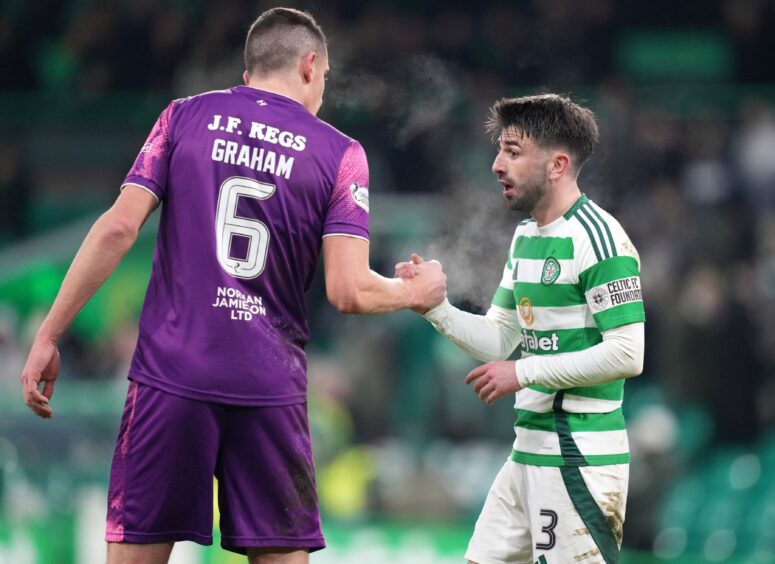
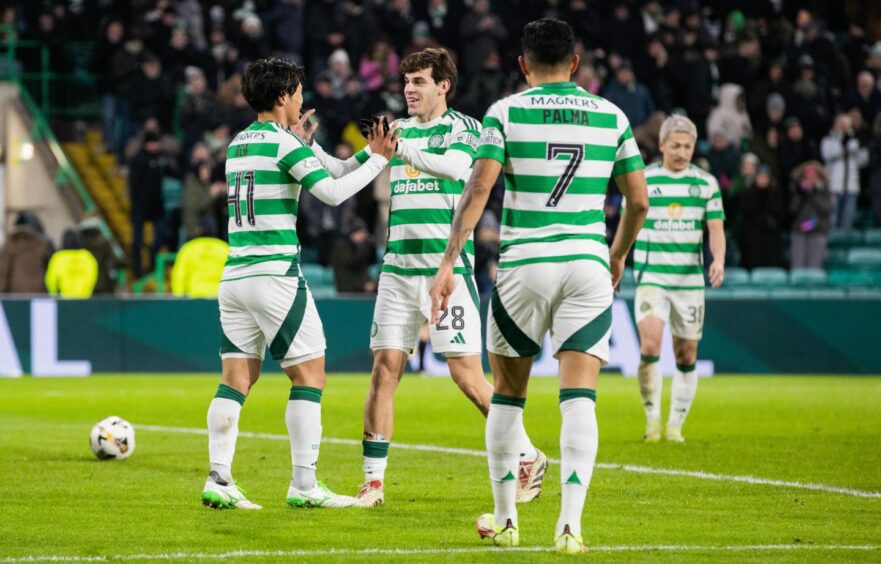
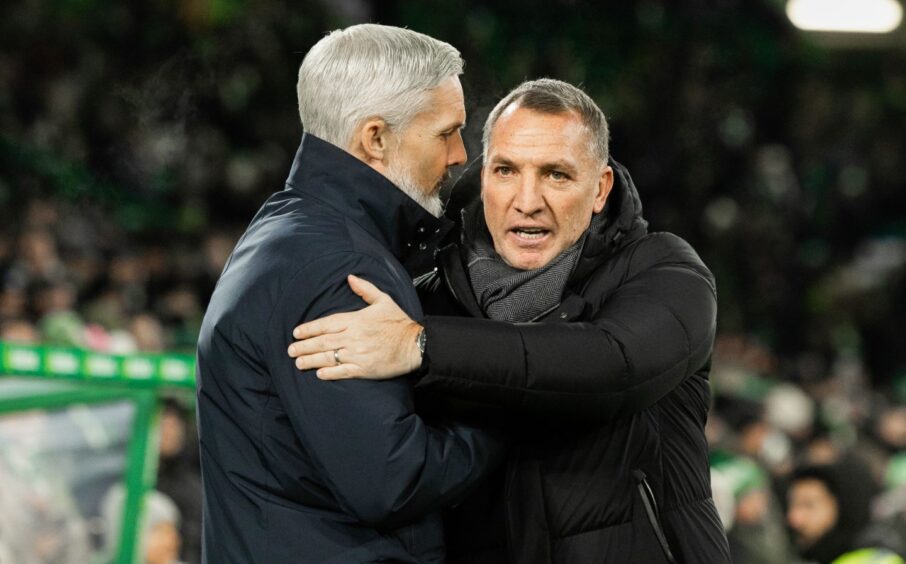
Conversation